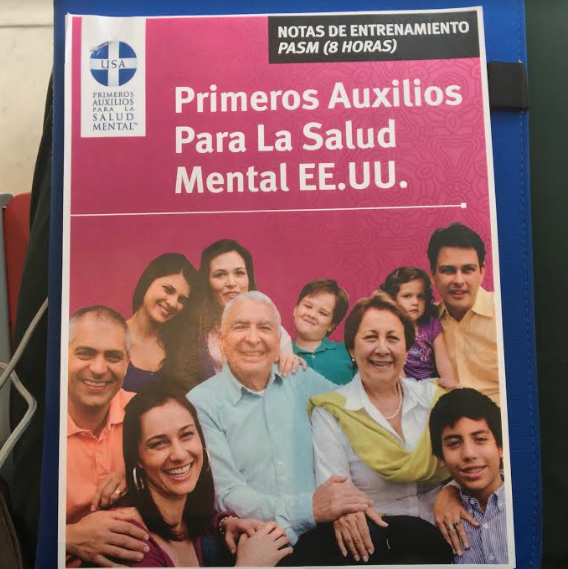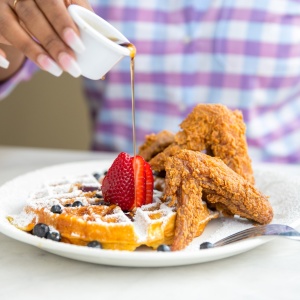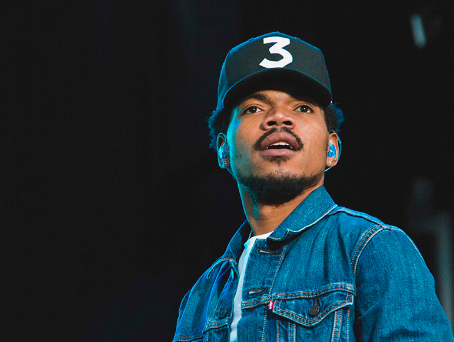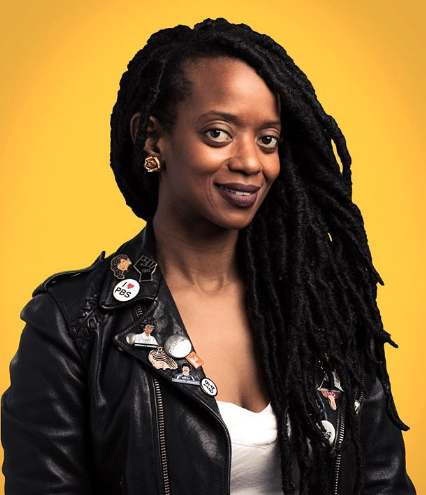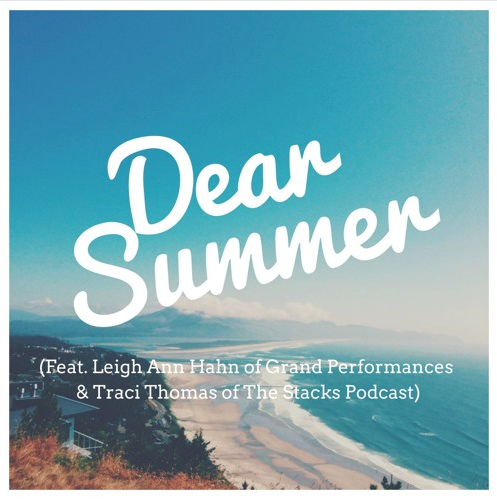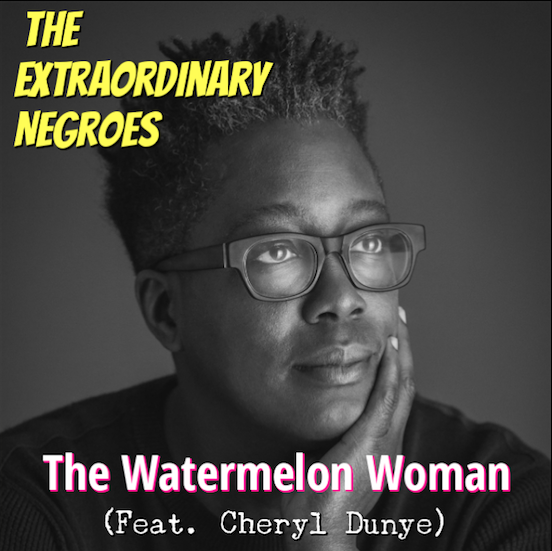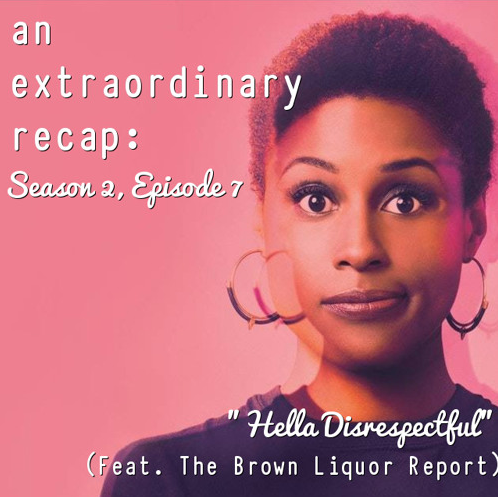Mental Health Monday #43: Tracee Ellis Ross' thug motivation, Black children & suicide, queer therapists, etc.
Mental Health Monday #37: Why are Black kids killing themselves?, Kendrick Lamar on depression on suicidal thoughts, etc.
Welcome to another round of Mental Health Monday, your weekly dose of stories, resources, and motivation for your everyday life. On last week's Mental Health Monday, Angela Helm wrote about that time her mom's breakown was captured on WorldstarHipHop, Katrina explored the dangers of the "ride-or-die chick" narrative, Hakim Hill dove into code switching and how it affects us, and Da Brat's story of loss was featured for Children's Grief Awareness Month. Have a gander.
THIS WEEK'S GOODNESS:
This week, we take a look back at one of the most revealing songs on Kendrick Lamar's To Pimp A Butterfly, which explored self-hate and self-love. Here, he spoke with MTV about the depression and suicidal thoughts that inspired the song, and how real life traumas impact his music.
"‘Sometimes I Just Don’t Wanna Be Here Anymore’: On Black Children and Suicide" by Kondawani Fidel [The Root]
A scarred brown palm flew in the air. A squeaky preteen voice followed: “Can you tell me how to cope with suicidal thoughts? Because sometimes I just don’t wanna be here anymore.”
I was sitting in front of a class of middle schoolers who were reading my book, Raw Wounds, when a student asked that haunting question. I can’t lie; when I asked the kids, “Do you have any questions before I start speaking?” I wrongly assumed that they would raise questions about my book. Boy, was I wrong.
"Army lifts ban on waivers for recruits with history of some mental health issues" by Tom Vanden Brook [USA Today]
The decision to open Army recruiting to those with mental health conditions comes as the service faces the challenging goal of recruiting 80,000 new soldiers through September 2018. To meet last year's goal of 69,000, the Army accepted more recruits who fared poorly on aptitude tests, increased the number of waivers granted for marijuana use and offered hundreds of millions of dollars in bonuses.
"Mental health summit aims to help young black men, boys cope with trauma" by William Lee [Chicago Tribune]
The four-hour summit, which begins at 10 a.m. at the Connect Gallery in Hyde Park, will also address the effects of social media on fueling the trauma on black youths and adults.
“With social media, I feel like we’ve normalized so many abnormal behaviors. At any given point you can log on Facebook and … you can see a picture of someone dead in the street,” she said.
"Are Black Children Killing Themselves To Avoid Abuse?" by Stacey Patton [Dame Magazine]
When I was around 8 or 9 years old I tried to kill myself.
Twice.
The first time, I threw myself down a narrow flight of carpeted stairs. The second time, I tried to poison myself by drinking peroxide. I had to lie to my adoptive mother about the limp, the twisted ankle, and the burns on my mouth and throat. The truth that I had intentionally tried to hurt myself would have led to another whupping.
Beyond the Statistics by Marylanders to Prevent Gun Violence: Erricka by Liz Banach
David was many things: a star football player, a great friend, a loving brother. He also struggled with an addiction to crack cocaine. Erricka remembered, “What’s crazy about him to me is that when he wasn’t using, he was helping other people get clean. He was an angel, a teddy bear.”
Aaaaand model Doraezha opened up about her journey with bipolar disorder.
If you have a mental health resource, event, or piece of content we should know about, step into our office. You da bess.
Mental Health Monday #30: Why Therapy Is Gangsta, Being Black & Depressed, Meditation 101, etc.
Good day, best friend. Welcome to another round of Mental Health Monday, your weekly dose of stories, resources, and motivation for your everyday life. On our last feature, we introduced you to lupus warrior and host of #LupusChat Tiffany Peterson, who shared why anime is the shit, how her advocacy work impacts her mental and emotional wellness, and a few things she does to get some joy. Check it out here.
THIS WEEK'S GOODNESS:
Shelah Marie, founder of Curly, Curvy, Conscious, shared a few useful tips for those new to meditation who may need some help finding their quiet place, centering themselves, and getting their woosah on.
"Black, young and suicidal: An epidemic we must continue to bring to light" by George M. Johnson [The Grio]
Let’s face it, Black folk are killing themselves and the rate of suicides are only increasing across many demographics.
According to the CDC, suicide is now the third-leading cause of death for Blacks ages 15-24. Although white people have the highest suicide rates in the country, the numbers around Black boys age 5-11 have doubled over the past 20 years. Researchers using this data have concluded that part of this rise is due to Black children “likely to be exposed to violence and traumatic stress, and that black children are more likely to experience an early onset of puberty, which can increase the risk of depression and impulsive aggression.”
"Therapy Is Gangsta: Hip-Hop’s Views on Mental Health Are Evolving" by Sheldon Pearce [Pitchfork]
In recent years, more rappers have been vocal about seeing therapists. Logic is at the forefront of rap’s battle for mental health; he first admitted to seeing a therapist in 2014 and he still goes. His recent hit “1-800-273-8255” was released in partnership with the National Suicide Prevention Lifeline, and he performed the song at the VMAs. Last year, Run-D.M.C.’s Darryl McDaniels put out a book called Ten Ways Not to Commit Suicide, in which he admitted to first seeking professional help in 2004 and pushed for more black men to seek treatment. “When I went to therapy I realized … that therapy isn’t ‘soft,’” he said. “My saying is, ‘Therapy is gangsta.’ It actually empowered me.”
"I am not OK: stoicism, mental health, and the black community" by Britt Julious [WBEZ Chicago]
I had a friend in school who wrote about her depression, and I berated her online. I didn’t understand why she couldn’t get over it. In my mind, this was not sickness. And therapy, while good in theory, seemed unnecessary for someone so young, smart, and wealthy living in an affluent suburb. “Why can’t she just push through this?” I used to ask. And as she continued to talk about her pain, I continued to feel angry. “This is not a problem,” I thought. I told a relative about the girl, and they said she was just acting dramatic. And in all of the things that signaled who was and was not a weak person, “acting dramatic,” was one of the worst. There was depression and there was “depression,” and I learned to only recognize the latter.
Phillip J. Roundtree, MSW, MS, mental health advocate and host of #YouGoodMan?, a podcast focusing on men's wellness, shared his experience navigating life as depressed Black man, and how he overcomes negative feelings, a lack of motivation, and bounces back from bad days and crappy moments.
"Treating Insomnia Can Ease Anxiety, Depression Study Says" by Shantell E. Jamison [EBONY]
The researchers found that those who had the CBT sleep treatment reduced their insomnia significantly. They also showed small but sustained reductions in paranoia and hallucinatory experiences.
The CBT led to improvements in depression, anxiety, nightmares, psychological well-being, and daytime work and home functioning, the researchers said.
"Students weigh in on mental health in the black community" by Taylor Y Matthews [University Daily Kansan]
One student said mental health in the black community isn’t "popular" to discuss. Another said the topic takes her out of her comfort zone. A third mentioned that black students aren’t comfortable talking about their personal feelings with someone who isn’t black.
Their answers made apparent why the National Panhellenic Council, which represents the nine historically African-American Greek lettered fraternities and sororities on campus, sponsored the forum "Mental Health in the Black Community,” at the Kansas Union on Sept. 14th.
Alex's year-long multimedia movement to encourage mental and emotional wellness among Black and brown folks, GetSomeJoy, is finally live. On the horizon: engaging events, a video storytelling series, Mental Health First Aid Trainings, an online wellness hub with a directory of Black and brown mental health professionals and wellness coaches/practitioners, and programs, agencies, and non-profits offering other vital support, and much more.
Learn more and answer the question, "How do you get some joy?" here.
Mental Health Monday #28: How suicide affects surviving siblings, Joe Budden on mental health in rap, etc.
Good day, best friend. Welcome to another round of Mental Health Monday, your weekly dose of stories, resources, and motivation for your everyday life. On last week's edition, writerly Wonder Woman and co-host of the Cinema Bun Podcast opened up about why Lion King brings her joy, how her creative pursuits impact her mental health, and the importance of a solid support system. Have a gander.
Today, Joe Budden had a moment while discussing mental health in rap after watching Styles P from The Lox discuss his daughter's suicide, a story from a woman who broke up with her white therapist, the effects of suicide on surviving siblings, and more.
THIS WEEK'S GOODNESS:
"Instead of Killing Myself, I Called a Suicide Hotline" by Joel Leon [Medium]
She asks your name and she tells you hers and you hope she knows she saved your life, that all that was needed was someone to not want from you, to not want to take anything from you; not to demand or question you or your thoughts or your actions; only giving, only offering, only loving.
"After A Suicide, Sibling Survivors Are Often Overlooked" by Cheryl Platzman Weinstock [NPR]
Until recently, these survivors often fell under the radar. They were overlooked in medical research, and no one understood what they were going through or how to support them. But, according to several studies of survivors, those who lose a sibling to suicide, especially one of the same sex or close in age, have more serious mood disorders and thoughts of suicide themselves than survivors who lose a sibling for any other reason.
"Why I Left My White Therapist" by Chaya Babu [Tonic]
"So how does it feel talking about this with me, a white woman?" Rachel* asked, catching me a little off guard.
It was the end of our session, and she sat perched on the edge of her chair, signaling that our 45 minutes was wrapping up, which I usually gleaned from her glances at the clock. By "this," she meant my increasing sense of chronic fear as a woman of color in Trump's America.
On her podcast "Talking Off The Couch," Dallas, TX-based Licensed Professional Counselor Tatiana Smith discusses the violence in Charlottesville and keeping it together in its wake.
"Filmmaker Elyse Fox Launched Sad Girls Club to Give Women a Space for Mental Health Support" by Corrina Allen
“A life with depression is my ‘norm,’” explains Fox. “I would describe my time with it as a journey of confusion and ups and downs. Thankfully, I think I’ve somewhat locked down what my ‘depression cycle’ looks like. I don’t really focus on the negative stigma, but it was something that made it difficult for me to speak out about. I’ve learned to live openly and focus on how to love every part of myself.”
"8 Online Alternatives That Are Cheaper Than Traditional In-Person Therapy" by Gretchen Hintze [Mighty]
According to therapist listing site Goodtherapy.org, most therapists charge between $75 to $150 per session with some charging as much as $200. Since most therapists recommend you see them once a week, therapy, while worth it, can quickly get expensive, ranging from $300 to $600 per month — although the cost may be less if you have insurance.
But luckily, a growing number of online platforms offer therapy that can be more affordable and just as affective for people looking for someone to talk to.
"Constant Anxiety Won't Save the World" by Julie Beck [The Atlantic]
Studies show that anxiety can interfere with decision-making and working memory. “Excessive worry can lead to fatigue, lack of concentration, and muscle tightness,” Woodruff says. “The interesting thing is the fatigue and lack of concentration are the opposite of what people are trying to promote when they’re advocating for vigilance.”
Previous Mental Health stuff:
"I Have Depression. I Am Not Ashamed"
Want to share your mental health story? Have some thoughts on self-care, trauma, therapy, or anything else concerning mental and emotional wellness? Send it our way!
On Taking Mental Health Days
In many black families the only conversations had about mental health are centered on that one uncle everyone swears was perfectly “normal” until a friend gave him some “bad stuff” in college twenty years ago. Although circumstances surrounding this "situation" are vague there is an unspoken understanding amongst family members that everyone handles “Unc” with kid gloves.
More importantly it is known that nobody, nowhere, at no time is to mention any of the details surrounding said uncle's bad weed (?) experience.
Growing up in my poor Black Midwest family, these very real circumstances were barely discussed, and when they were, rarely did anyone use technical terms or point to the very real and present examples. When anyone mentioned therapy or burnout it was regularly dismissed and filed away under White People Shit. My only example of self–care was when the phone would ring and my mama would say, “I don’t care who it is, I ain’t here.” I wouldn’t say that this was the best form of self-care but it was the 90’s, she was a single mother raising four kids working two jobs—It be like that!
I knew back in high school that I was suffering with depression pretty badly; I had days where I literally could not get out of bed, and I contemplated suicide on multiple occasions. Although I was struggling to get through my day to day life and considering putting an end to it, nobody knew. I was taught at an early age that no matter what was going on, always live by the ancient Wakandan Proverb: “Fake it ‘til you make it!” I did and I did it well.
I lived this way well into my 20's. At 21 years old I was working 60 hour work weeks running an after-school program, and juggling life as the primary caretaker of my 6 year old nephew who was staying with me at the time. On the outside people thought I had my shit together, but in reality I had no balance and my life was a mess. My wife (then just a friend) warned me that I needed to take care of myself. Clearly this life I was living was not sustainable, and she feared if I took on anything else I’d break.
One day after a series of unfortunate events I was forced to move from my apartment and had nowhere to go. It was an ice cold rainy day in February. Most of my clothes and some of my furniture were ruined. It was a mess. I recall standing frozen in the pouring rain, thinking, “This is rock bottom. I’m done living.” I heard a neighbor asking if I was okay. I immediately snapped back to reality and responded, “Sure.” Remembering that old proverb, I held it all together, rented a truck, mustered up Hulk-like strength, and moved my entire two-bedroom apartment into a storage unit by myself.
When I was done I sat and stared at the ground for a whole hour before I called my friend, Jazz (now wife) to tell her what happened. Within 30 minutes, she and my homeboy both offered me space at their apartments. That night, both of them laid on the floor with me, and gave me permission to just be, and to feel whatever I needed; I sobbed uncontrollably for hours before falling asleep.
The next morning I woke up and started getting ready for work, and I heard Jazz’s voice yell from the other room, “What do you think you’re doing?!?” I explained I was headed to work.
“Oh hell nah, you’re taking a Mental Health Day.”
I had never heard this term before then. She explained to me that I needed to take a day detached from my stressors and worries, focusing on recharging and reenergizing. First I thought she was crazy, but then I realized that was exactly what I needed.
After I took my first Mental Health Day, I noticed immediately how refreshed I felt, and how detaching for 24 hours allowed me to focus on life, regain my positivity, and center myself.
Taking a Mental Health day allowed me to approach my life (bullshit included) with a sense of control and stability that my stress and depression took from me.
Fast forward 9 years I am now married with two kids. Not only am I still taking Mental Health Days, but the rest of the family is too. They have become of our family’s wellness plan. There are unscheduled days throughout the year when we each take the time we need. There are all also days when the whole family needs these days together to regroup and focus our energy, and watch all the Harry Potter Movies. Right now Mental Health days are only offered to my Wife and the the ActionFigure (my 12 year old son). My 2 year old daughter, The MiniFigure?
Oh, her ass is the reason we need so many, so she goes to daycare whenever it's open!
I used to feel guilty. I would be nervous calling my boss to request the time off. I would lie and tell The ActionFigure’s teachers he had to go to the Orthodontist (lil' nigga ain’t even got braces). I even tried to keep these days a secret, cause God forbid grandparents got wind that the kid missed school for “no good reason.” We would have to hear a speech about how crazy “these millennials” are with this “newfangled parenting.”
Finally, I said I don’t give a shit. I value our mental health and well-being over what folks think. I don't worry anymore about what I'll tell my job because for me to do my best I need to be at my best. If I'm honest, I'd have to say employers are overdue on writing mental health into sick leave situations. In the meantime, what do I look like hoarding my sick/vacation time knowing Susie from accounting just took a week off to get her dog cataract surgery?!? Mental Health Days are so crucial to my overall wellness and success, that I’m not letting anyone or anything stand in the way of me taking these days to get my mind right.
Also from today: Mental Health Monday #23: Ways to beat anxiety, healing via apps, Isaiah Rashad on depression, etc.
Do you have an event, article, story, video, or resource we should know about? Don't be shy, hit us up.
Before retiring to his life as Husband and father of two, Jamond Coaston-Foree was a theatrical performer, director and costume designer. He now works in the Youth Development Non-Profit world, teaching the children of our future well, and letting them lead the way. Not at all competitive, he is the absolute best at talking shit. He is a well decorated fried chicken connoisseur, and enjoys singing show tunes when everyone else is quiet.
Mental Health Monday #19: Depressed veterans, barbers as therapists, Black boys and feelings, etc.
Hip-hop mogul Chris Lighty (NPR)
Greetings, Earthling. Welcome to another round of Mental Health Monday, your weekly dose of stories, resources, and motivation for your everyday life. We made it here to another week in the Age of Alternative Facts. Clap it up for you. To make sure you stick around to help make this world less sucky, we've got some magic here for you.
On the last roundup, we shared some goodness about how the church failed a mother with mental health challenges, a guy who walked across the country to help with his depression, and a beginner's guide to therapy by Buzzfeed's Heben Nigatu. Have a gander.
THIS WEEK'S GOODNESS:
"Hip-Hop, Mental Health and Telling Our Stories: Combat Jack Talks the Life and Death of Chris Lighty" by Shanita Hubbard [The Root]
Mogul is fair and authentic. It unpacks some uncomfortable truths. It dives into mental-health issues that are specific to black and brown people, and the pressures of fame; and it takes the listener on a journey of what it feels like to truly see our heroes as their complex, beautiful, flawed and powerful selves.
Nikki Lynette shared some tips about handling depression, anxiety, and the like when stuff gets really real.
"Breaking the mental health taboo: 'Please talk about it'" by Phillippa Goodrich [BBC]
After his collapse, which he says followed weeks of not sleeping and drinking too much, Brian was admitted to a clinic for two months. There it became clear that he had suffered from depression since his teens.
Brian says the culture and environment in which he was working at the time wasn't conducive to helping him to recognise his illness, but he thinks the failure to acknowledge it goes deeper than that.
"Society, the world in which I was operating, the country in which I was operating - it was taboo."
"Encouragement from others to live well again" by Jennet [Make the Connection]
Jennet's father died while she was in Iraq, which made transitioning back even more challenging. She returned to her unit, and her chain of command saw a difference in her. With their encouragement, she began counseling and later found support at VA. Treatment helped Jennet overcome depression and begin living well again.
"Rocked by suicides, Palo Alto high schools want to make mental health care as normal as eating breakfast" by Grace Hwang Lynch [PRI]
In this Silicon Valley town that has experienced too many teen suicides, the schools are trying to make mental health services as normal as eating breakfast or taking medicine for a physical ailment. At the wellness centers, students can visit a nurse, see a counselor, or just relax with a granola bar or cup of tea.
“I actually come in here quite often, whether it’s to meet with Julia or to catch up with friends or counselors. The snacks are a big part of it, and it’s just a really nice place during brunch or lunch to unwind,” says Palo Alto High junior Maddie Lee.
"Barbershops as confessionals, newsrooms and therapists" [The Economist]
Keith Dube, a radio presenter, has argued that there is a “mental health crisis ongoing in black, British communities” (it formed the subject of his documentary “Being Black, Going Crazy?”). Mr Dube struggled with depression but found it difficult to talk about because “black people don’t really do mental illness”. When he started looking into it he found that black men were 17 times more likely than their white counterparts to be diagnosed with a serious mental health issue and that young black men were six times more likely to be sectioned. A distrust of the authorities, as well as a fear of the reaction of peers and parents, leads many to the barbershop chair as the safest space to talk.
YouthBuild Philly recently held a conference on men's mental health and here's a clip of it:
"Giving Voice to the Feelings of Black Boys" by Amber A. Hewitt Ph.D. [Psychology Today]
In the case of Black boys, the intersection of their race and gender may serve as an additional barrier for emotional expression. Majors and Bilson (1992) theorize that one way Black boys and men cope with experiences of oppression is by adopting an exaggerated form of masculinity, or cool pose. Cool pose is often manifested by a tough posture, or mannerisms, to show others that you are in control, despite daily slights of injustice.
Mental Health Monday #12: Acts of self-care, soothing stressed babies, navigating academia as an anxious Black woman, etc.
HOWDY. Welcome to Mental Health Monday, your weekly shindig dedicated to mental and emotional wellness and other vital information for your everyday life. When/if the week get's wack, think of these joyful, dancing-ass babies from Mr. Sorto's Kindergarten class in Washington, D.C. and smile or something. You're welcome.
THIS WEEK'S GOODNESS
“Just pray about it” - Ignoring mental health is killing black youth" by Artemis Faye [Afropunk]
"As soon as I entered the program I was made immediately aware that I did not fit the standard profile of someone who was “supposed” to have an eating disorder- not only was I the only woman of color in the program, but I struggled with group therapy because I honestly had a completely different life and struggles from my white peers. How could I, a poor black girl from Atlanta who could barely afford the treatment I needed, relate to a room full of upper middle class white women? How could I properly address generational trauma while staying silent about the issues that affected me solely for being a black woman? By the end of the program, I had felt so ostracized that I ended up leaving against medical advice."
"Babies need extreme comfort to overcome the damaging effects of stress" by Daniel Keating [Salon]
"When a baby signals that something is amiss, it matters if the need is met fairly promptly, at least most of the time. This doesn’t mean being at the infant’s beck and call at every moment of the day or night, but it does mean that distress should lead to soothing in a reasonably predictable way for the baby. Why is it significant that a baby’s needs be met when he lets you know he’s unhappy? After all, if feeding, changing, and soothing are happening—regardless of whether this is happening at just the moment the baby is demanding it—shouldn’t that be nurturing enough?"
"35 Acts of Self-Care You Should Try" by Genese Jamilah [I Don't Do Clubs]
1. Take a solo vacation
2. Buy yourself flowers
3. Forgive yourself
4. Read a self-help or empowerment book
5. Clean out your closet and donate to charity
6. Take a yoga class
"4 Changes in My Morning Routine That Indicate Depression Is Back" by Miranda Nichole [The Mighty]
"1. Same amount of time for less.
I used to really enjoy my morning routine. I used to think of it as my “me time,” first thing in the morning before my boyfriend wakes up and before the responsibilities of the day meet me on the other side of our apartment door. I would wake up three hours before I needed to leave the house for class, allowing time for exercise (usually yoga), a shower, time to get my thick hair in order, put on my face, eat breakfast, get dressed and pack my bag for the day. Those three hours gave me time to do so much and now it takes that same amount to do far less."
"I’m A Black Psychotherapist And We Need More Of Us" by Tanay Hudson [Madame Noire]
"As one of the few Black therapists at the mental health clinic in East Harlem, I see firsthand the major shortage of Black therapists. Mental health services are important, and having therapists that look like the clients they serve is just as crucial. During my years in the field, I have encountered Black and brown clients who have disclosed to me that they did not feel comfortable with their white therapists. Having people of color work with this population, especially young Black youth, is important. Not only do they need to see positive images of Blacks in their communities, they need to feel understood by someone who is helping them as they face adversities that are race-related."
"Resources for Self-Harm and Thoughts of Suicide" [Just Jasmine]
"We all have moments of feeling the impulse to escape whatever pain we are experiencing. Please use the resource below to support yourself when you or loved ones are experiencing feelings of suicide or a desire for self-harm."
"After ‘shutting down’ his emotions for 20 years, Prince Harry needed therapy to deal with Diana’s death" [The Telegraph]
"Prince Harry has revealed that he sought counselling after enduring two years of “total chaos” while still struggling in his late twenties to come to terms with the death of his mother.
The Prince says in an interview with The Daily Telegraph that he “shut down all his emotions” for almost two decades after losing his mother, Diana, Princess of Wales, despite his brother, Prince William, trying to persuade him to seek help."
"Mental Illness Is On The Rise But Access To Care Keeps Dwindling" by Lindsay Holmes [Huffington Post]
"Researchers from NYU’s Langone Medical Center analyzed almost a decade’s worth of data and found that more than 8.3 million Americans ― or an estimated 3.4 percent of the adult population ― suffers from a serious mental health issue. The latest data is a departure from previous reports on the CDC’s survey, which estimated that fewer than 3 percent of American adults experienced serious psychological distress, according to the study’s authors."
"Autism and Me: What I’ve Learned in the Year Since My Diagnosis" by Laura Charleston [The Mighty]
"April is an incredible month; besides the fact the weather is becoming warmer, it’s also Autism Awareness Month. This is the first Autism Awareness Month I have ever participated in, and it feels amazing. Don’t get me wrong, I feel that Autism Awareness should occur every day, every month, but it’s refreshing to know that there is a dedicated month for autism and Autistic people.
It’s approaching a year that I was diagnosed with autism, and what a year it’s been, with learning more about myself as a person, attending support groups and learning how to be more independent. Without forgetting to mention the incredible people I’ve met and had the privilege of working with, including my lovely support worker, and the lessons I have learned in terms of myself, other people and life."
"For Anxious Black Women Navigating Academia" by Cara Thompson [Huffington Post]
"It is looking around a full lecture theatre and realising you are the only black face; it is the way in which the line between your seminar tutor’s constructive criticism and condescending quips becomes increasingly blurred; it is the elation you feel as you find a class on nation and identity, only to find the syllabus sails no further than the Irish Sea. It is the exaggerated raise of eyebrows in silent surprise at “just how articulate you are!” It is remembering the boasts of diversity and inclusion you had once signed up for, and realising just how violently you have been let down."
Do you have a mental health-related story, visual, or resource we should know about? Be a pal and send it our way.
View the rest of our mental health content here.





